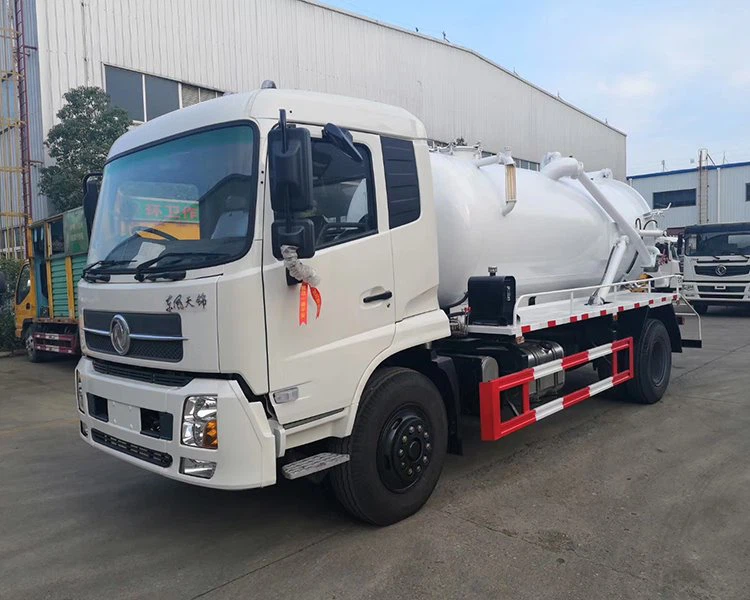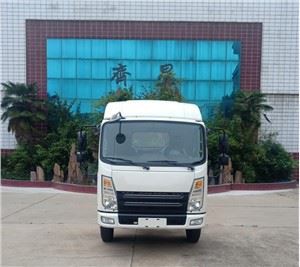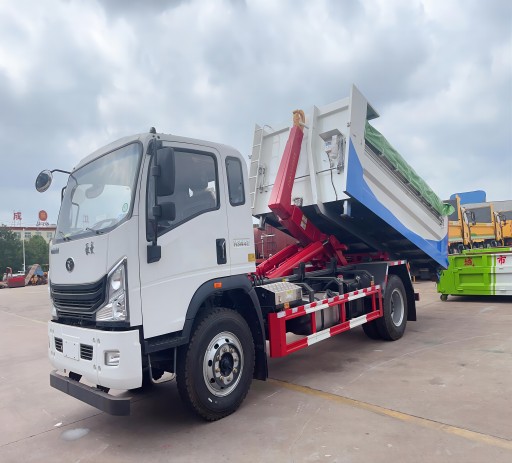Understanding Hook Loaders: A Comprehensive Guide

Introduction to Hook Loaders
Hook loaders are essential pieces of machinery widely used in construction, waste management, and transportation industries. They are designed to load various types of containers onto a flatbed or chassis, simplifying the process of moving materials efficiently. This article delves into the specifics of hook loaders, exploring their functionality, advantages, and various use cases, along with practical tips for selecting and operating these machines effectively.
What is a Hook Loader?
A hook loader is a specialized vehicle that uses a hook mechanism to lift and transport containers. Typically mounted on a truck chassis, hook loaders can handle a range of container types, including skip bins, flatbeds, and customized containers. The system employs hydraulic arms to latch onto the container, allowing operators to load and unload them quickly and safely.
How Hook Loaders Work
The working principle of a hook loader revolves around its hydraulic system. Here’s a step-by-step breakdown:
- Hook Engagement: The hook loader extends its hydraulic arms and engages the container’s lifting points.
- Lifting Mechanism: The hydraulic system lifts the container off the ground.
- Transport Mode: Once lifted, the container is positioned onto the truck chassis.
- Secure the Load: The container is secured with locks or clamps on the chassis.
- Unloading: To unload, the process is reversed, allowing the container to be placed down with precision.
Types of Hook Loaders
Hook loaders come in various configurations, tailored to meet specific operational needs. Here are some common types:
- Standard Hook Loader: Features basic functionalities suitable for general use.
- Heavy-Duty Hook Loader: Designed for larger containers and heavier loads, suitable for construction sites.
- Multi-Container Hook Loader: Capable of handling multiple container types, increasing versatility.
Advantages of Using Hook Loaders
Employing hook loaders offers several advantages for businesses across various sectors:
1. Efficiency in Loading and Unloading
The swift loading and unloading capabilities of hook loaders significantly reduce the time spent on these tasks, enhancing operational efficiency.
2. Versatility
Hook loaders can accommodate a wide array of container types, making them suitable for numerous applications from waste disposal to material transport.
3. Cost-Effectiveness
The ability to perform multiple tasks with one vehicle minimizes the need for additional forklifts or loaders, thus saving costs for businesses.
4. Safety Features
Modern hook loaders are equipped with safety features such as overload protection and automatic locking systems, ensuring safe operations for the crew.
Applications of Hook Loaders
Hook loaders find applications in various sectors:
1. Construction Industry
In construction, hook loaders are used to transport materials like gravel, sand, and debris in containers efficiently.
2. Waste Management
They play a significant role in waste management, enabling easy collection and disbursement of waste containers in urban areas.
3. Landscape Maintenance
Gardeners and landscapers utilize hook loaders for transporting soil, mulch, and other landscape materials easily.
4. Recycling Operations
Hook loaders streamline the collection and transportation of recyclable materials, making recycling processes more efficient.
Choosing the Right Hook Loader
Selecting the appropriate hook loader involves considering several factors:
1. Load Capacity
Ensure the hook loader can handle the weight of the containers you plan to transport.
2. Container Compatibility
Choose a loader that can lift and secure the types of containers you use most frequently.
3. Maneuverability
Assess whether the hook loader can operate in your work environment, especially around tight spaces.
4. Hydraulic System Quality
Look for high-quality hydraulic systems for enhanced performance and longevity.
Maintenance Tips for Hook Loaders
Proper maintenance is essential for the longevity and efficiency of hook loaders:
1. Regular Inspections
Conduct frequent inspections on hydraulic systems, hooks, and cables to identify wear and tear.
2. Cleanliness
Keep the loader and containers clean to prevent rusting and deterioration.
3. Lubrication
Ensure all moving parts are well-lubricated to prevent friction-related damages.
4. Operator Training

Provide comprehensive training for operators to reduce accidents and improve operational efficiency.
Cost of Hook Loaders
| Type of Hook Loader | Approximate Cost | Best Use Case |
|---|---|---|
| Standard Hook Loader | $20,000 – $50,000 | General use |
| Heavy-Duty Hook Loader | $50,000 – $100,000 | Construction sites |
| Multi-Container Hook Loader | $80,000 – $150,000 | Versatile operations |
Practical Examples of Hook Loader Usage
Consider these examples to understand the practical applications:

Example 1: Construction Site
A construction company uses a heavy-duty hook loader to transport debris from a demolition site. The loader rapidly moves containers filled with waste, ensuring the site remains organized and safe.
Example 2: Municipality Waste Collection
A local municipality employs hook loaders to pick up waste containers from various neighborhoods. The efficiency of the hook loader allows for quicker rounds, minimizing delays in waste disposal.
Example 3: Landscaping Business
A landscaping business utilizes a hook loader to transport soil, mulch, and landscape waste. The compatibility of multiple container sizes allows the business to adapt to different project requirements.
Frequently Asked Questions (FAQ)
1. What is the primary use of a hook loader?
A hook loader is primarily used to lift, load, and transport various types of containers in industries such as construction, waste management, and landscaping.
2. How does a hook loader improve operational efficiency?

By allowing for quick loading and unloading of containers, hook loaders reduce downtime and enhance productivity on job sites.
3. Are hook loaders safe to operate?
Yes, modern hook loaders are equipped with safety features; however, proper training for operators is crucial to ensure safe use.
4. Can hook loaders be used in tight spaces?
Some hook loaders are designed for enhanced maneuverability, but it’s essential to choose a model that suits your operational environment.
5. What maintenance is required for a hook loader?
Regular inspections, cleanliness, lubrication, and operator training are key components of maintaining a hook loader effectively.
6. How much does a hook loader cost?
The cost varies based on type and specifications, ranging from approximately $20,000 to $150,000.
